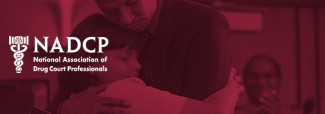Integrating Addiction Medicine with Treatment Courts

Overview
This 6-hour, live course provides the education needed for prescribing clinicians to strengthen skills in partnering with treatment court and advocating for patients who are involved in treatment court. The course will include didactive presentations, small group discussions, FAQs, and challenging case studies.
ASAM is partnering with the National Association of Drug Court Professionals (NADCP) through an Office of National Drug Control Policy (ONDCP) grant initiative to allow medical providers active with and new to the drug treatment court field access to training to help guide them in successful integration of services for individuals with substance use disorders involved in the justice system.
The target audience for this introductory level activity includes: physicians, physician assistants, and nurse practitioners who practice addiction medicine and interact with treatment courts and other aspects of the justice system.
This activity addresses the following ACGME Competencies: Patient Care, Medical Based Knowledge, Practice Based Learning, Interpersonal and Communication Skills, Professionalism and Systems-based Practice.
Learning Objectives
Upon completion, learners will be able to:
- Describe ways to reduce stigma against people with substance use disorders, including the use of accurate terminology.
- Explain the role of timely and accurate diagnosis and treatment for clients/participants first engaging in treatment courts.
- Define addiction as a chronic and manageable disease.
- Describe the purpose, structure, and effectiveness of treatment courts.
- Define the roles and responsibilities of treatment court team members.
- Describe the roles and responsibilities of medical providers within treatment court settings.
- Apply best clinical and partnership practices to case examples of patients who are engaged in treatment court and addiction treatment.
- Advocate effectively for access to evidence-based treatment with treatment court team members.
- Coordinate care within professional settings to individuals involved in treatment courts.
